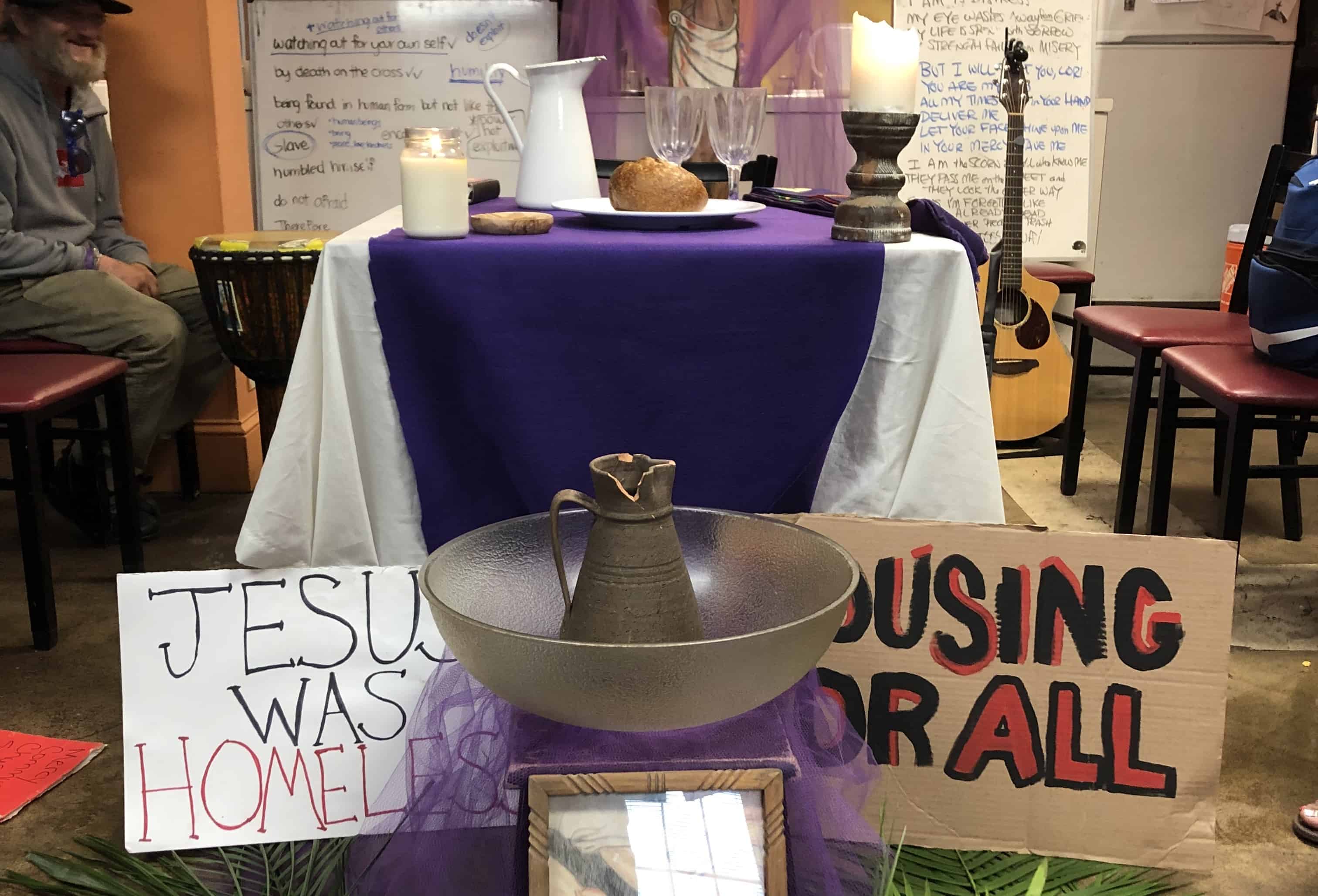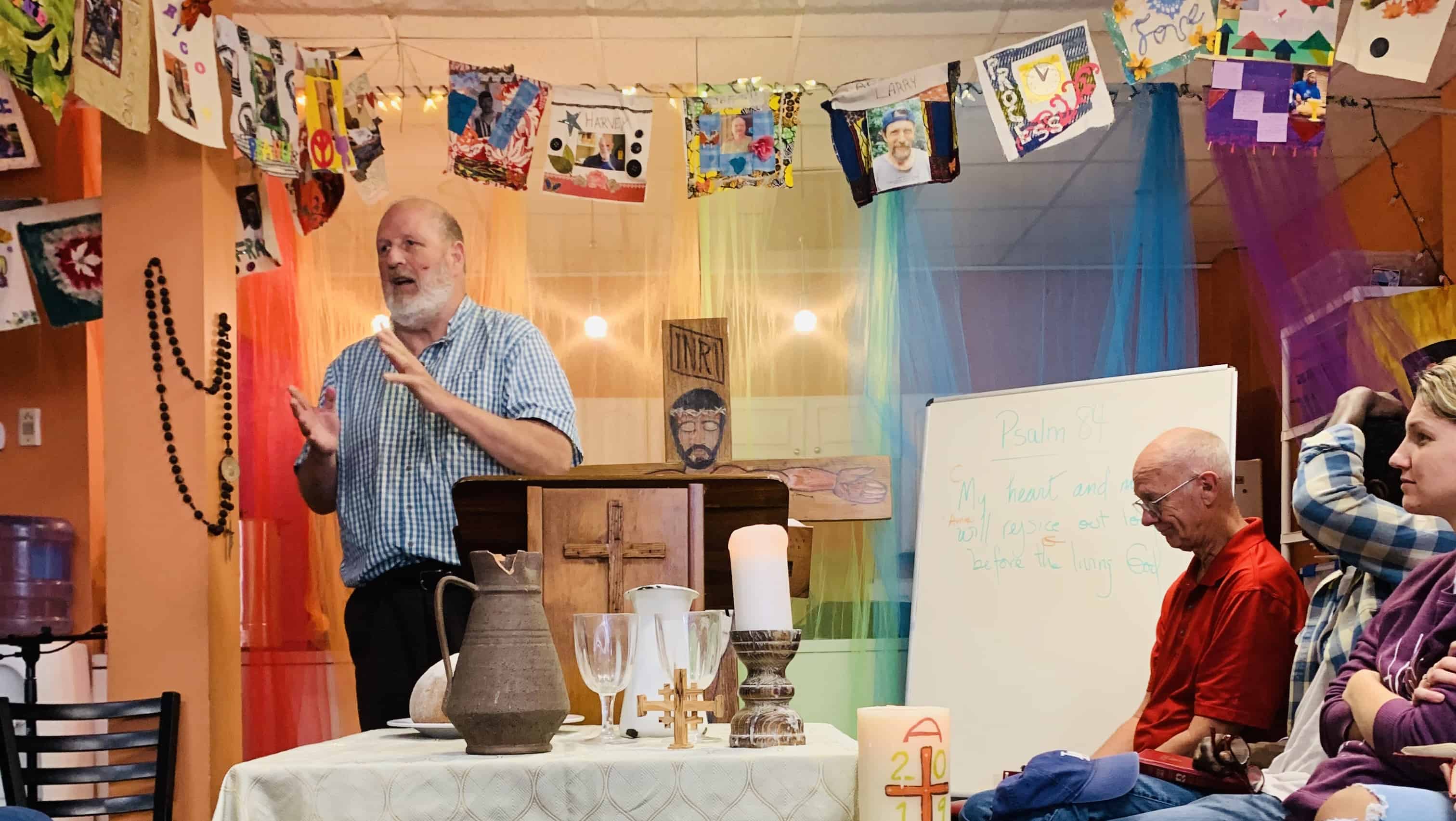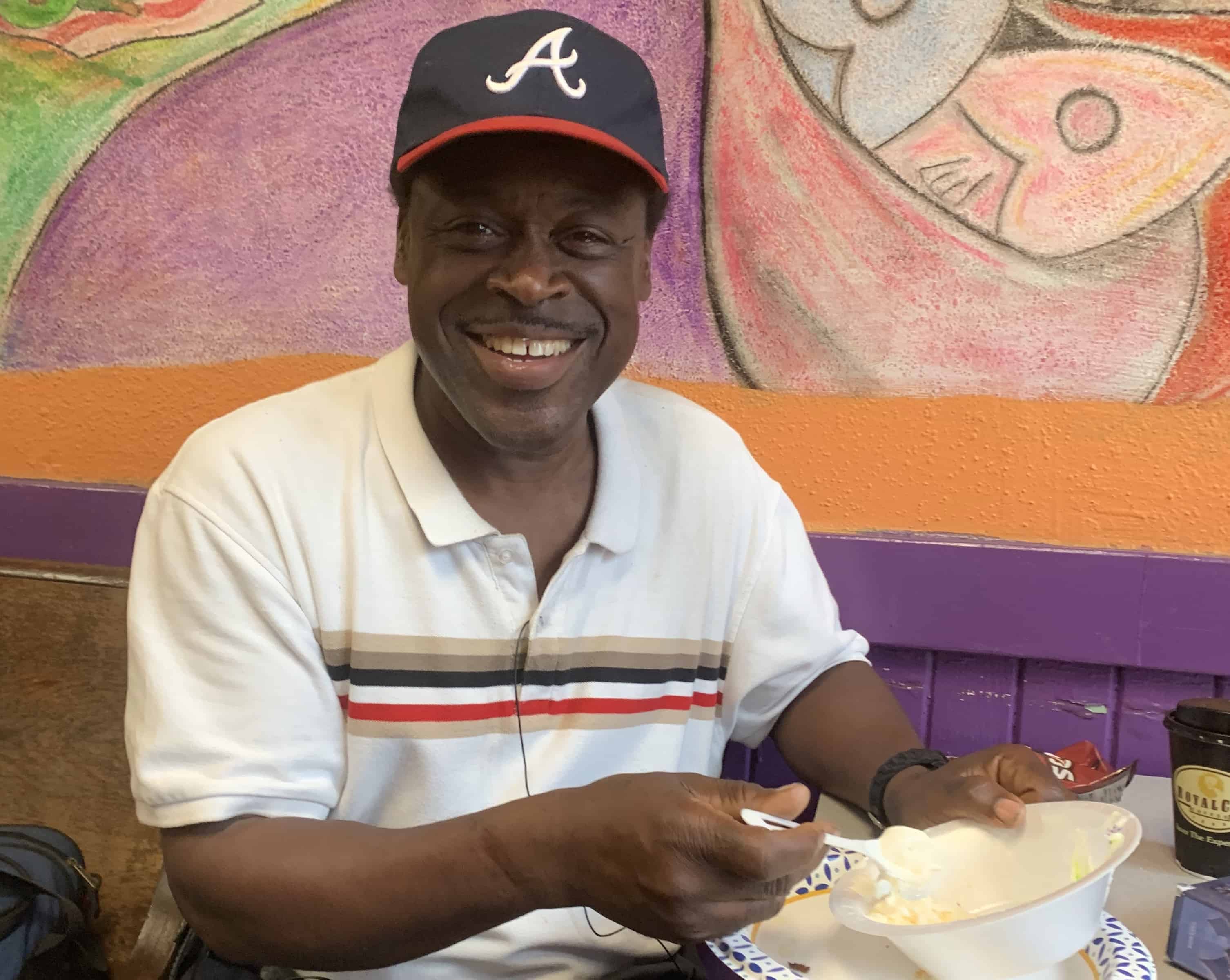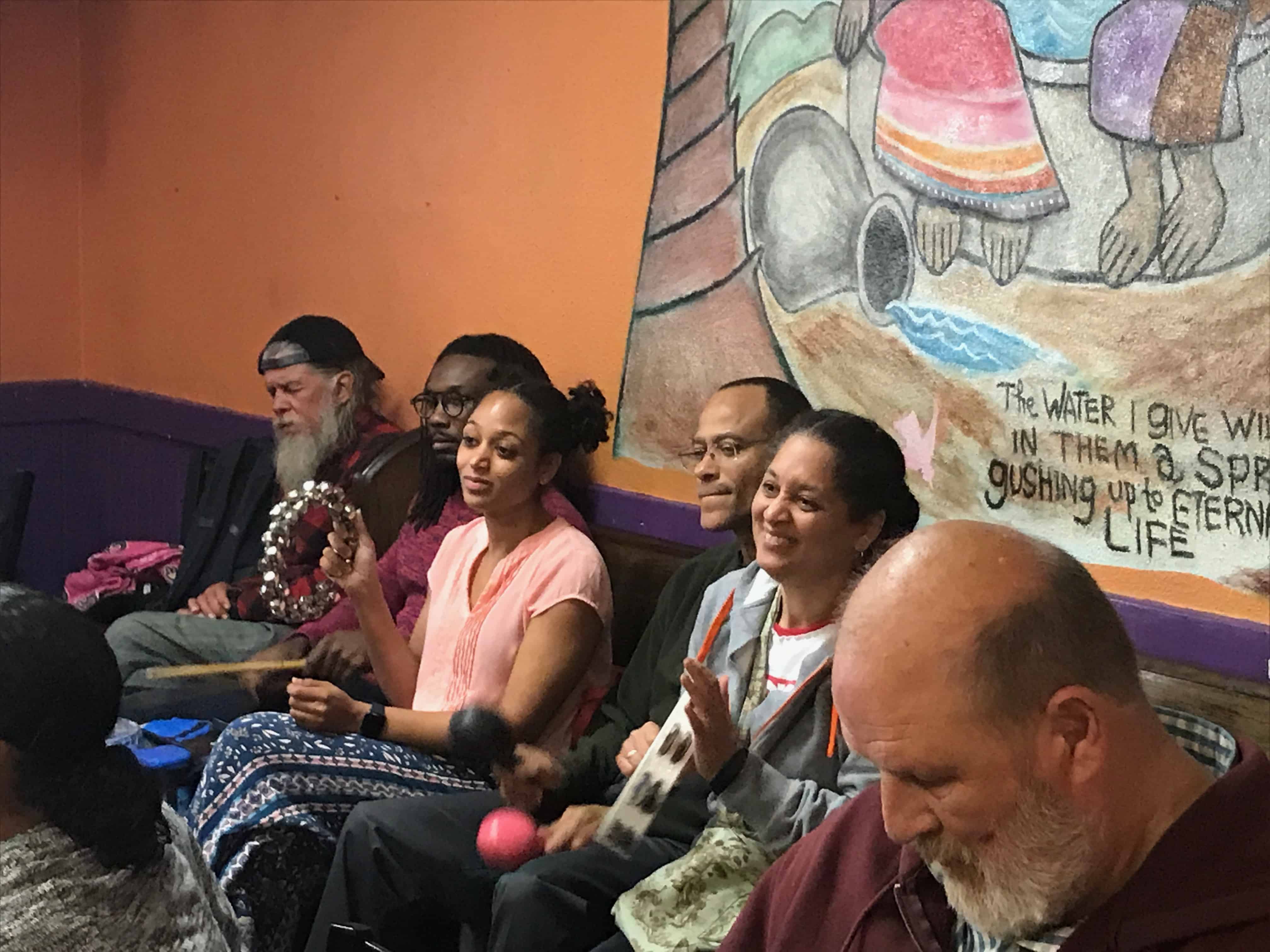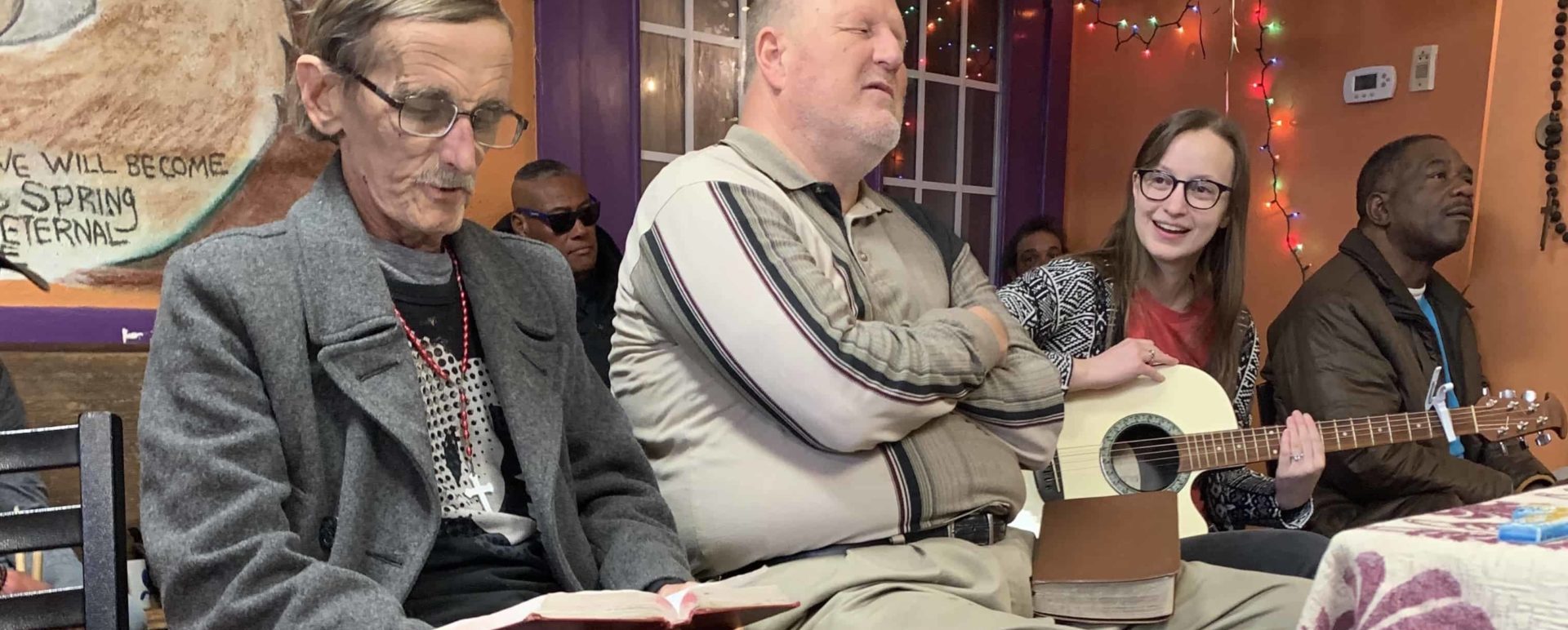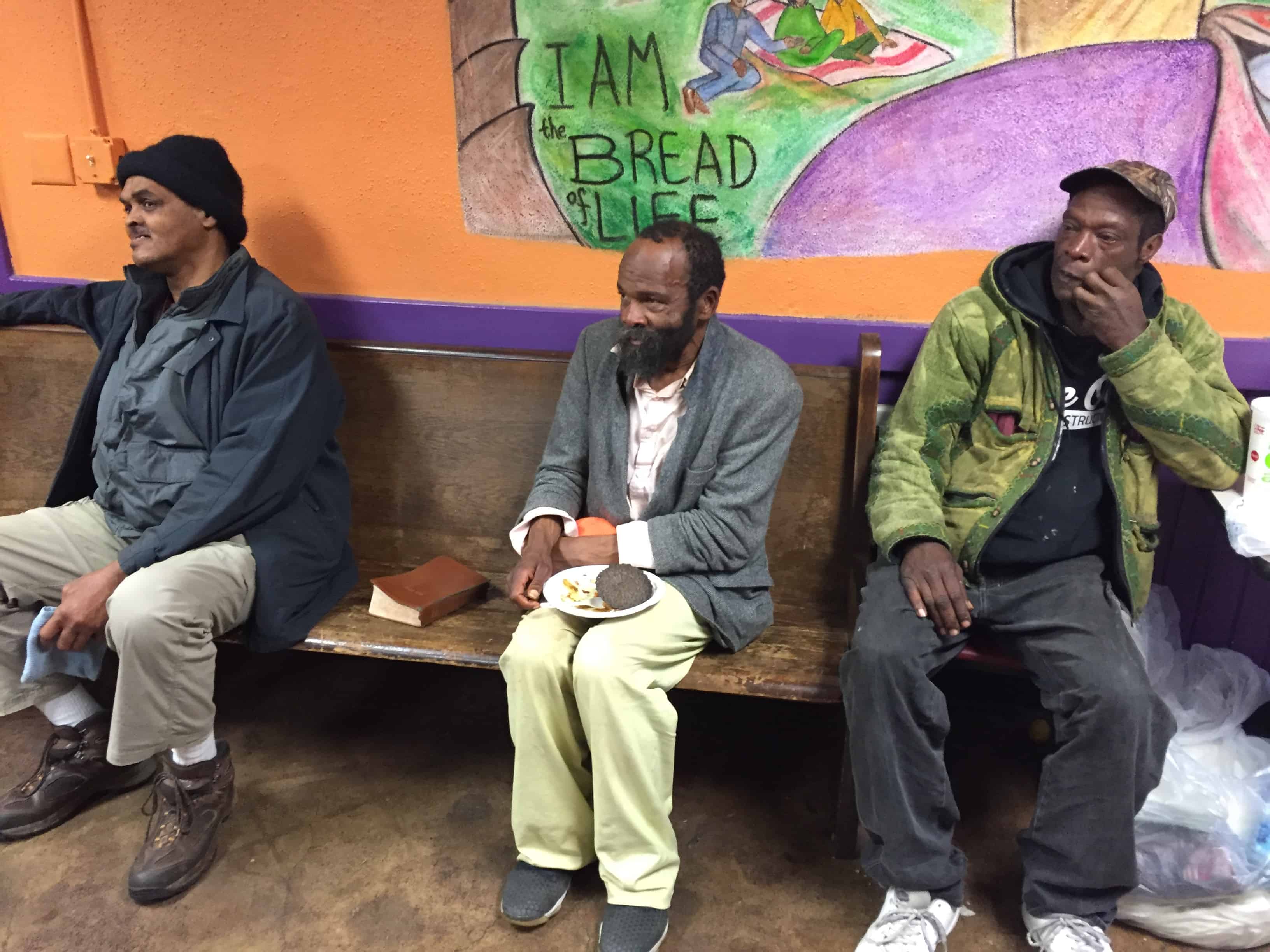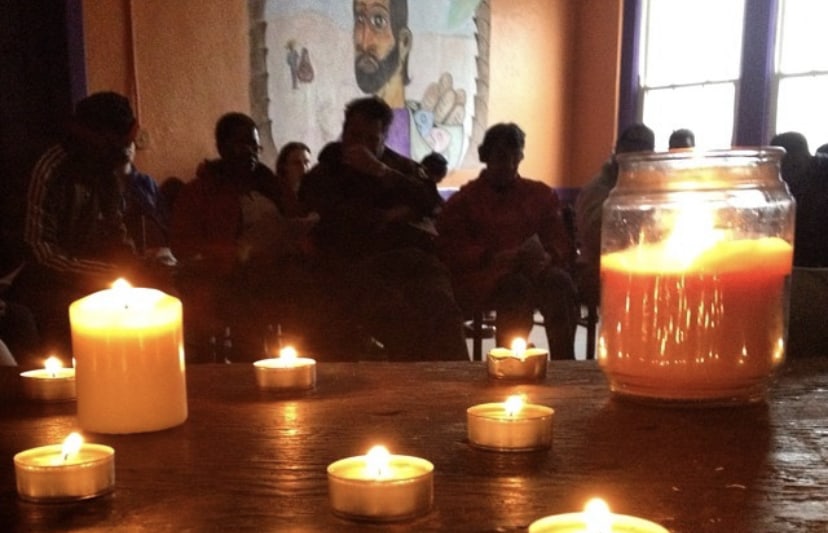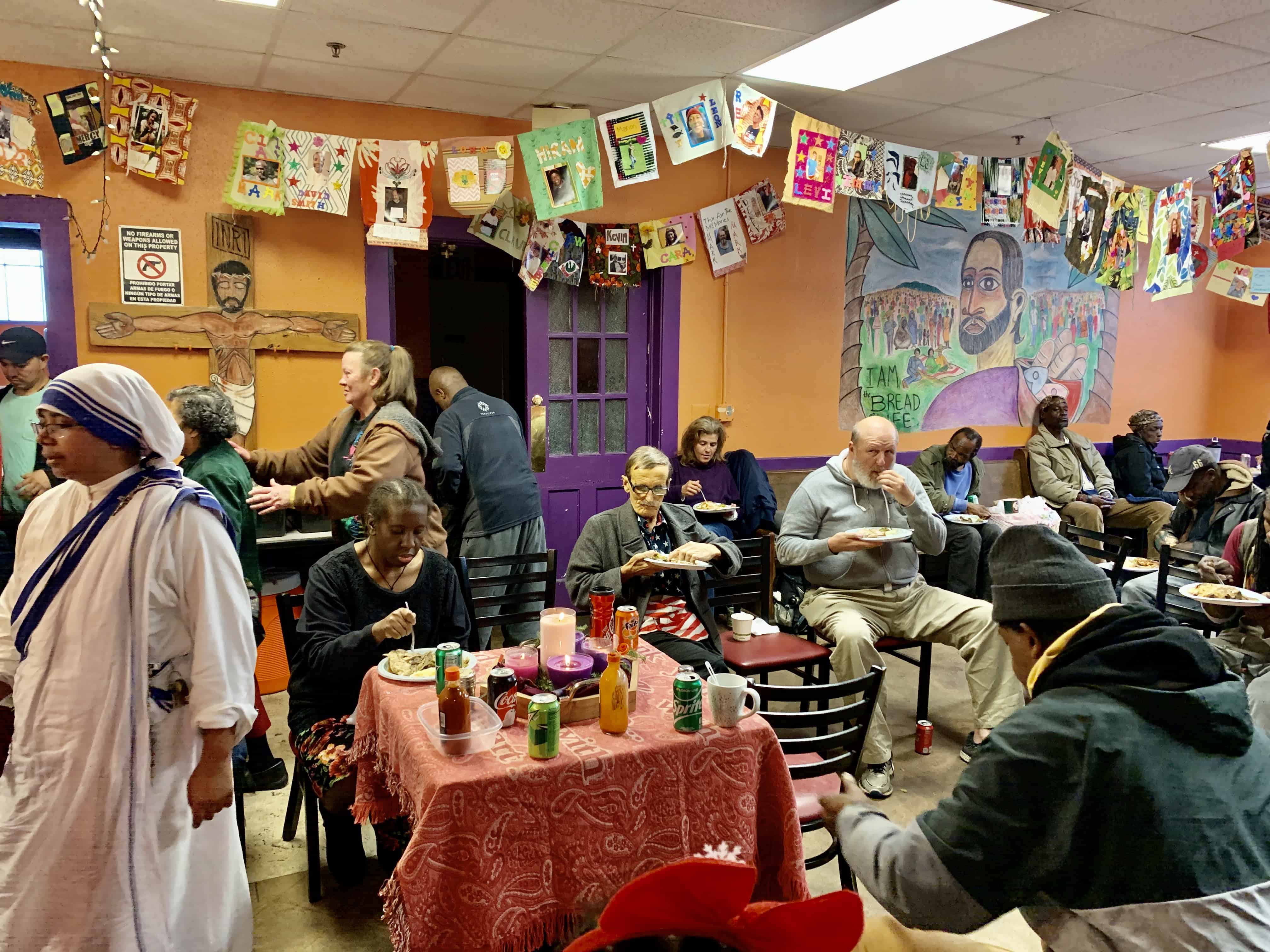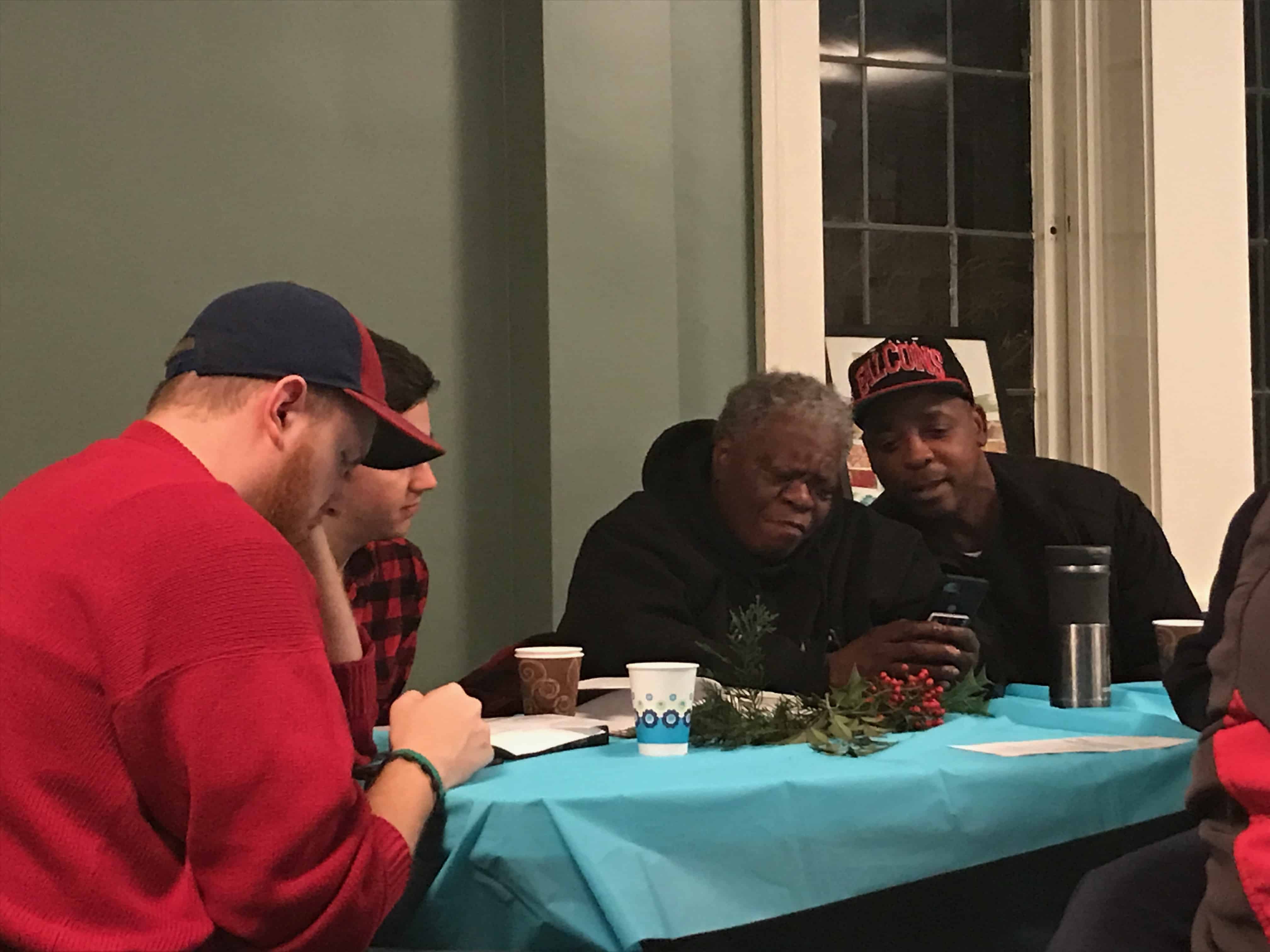By: Maurice Lattimore
Romans 5:1-11
Reflection–v.8 ‘while we were still sinners Christ died for us’
When I reflect back on this passage, it shows me just how grateful I am for the mercy and grace that was shown to me through our Lord Jesus Christ—which through no merits of my own do I deserve but only through the life, death, and resurrection of our Lord Jesus Christ. And when life throws us curves, just keep fouling them off. The right pitch will come, but when it does, be prepared to run the bases. We may encounter many defeats, but with Christ’s Spirit within us we will not be defeated. Those curveballs are always coming. Eventually, you learn to hit some of them. Keep hope alive! Hope does not disappoint us because the love of God has been poured into our hearts by the Holy Spirit who was given to us. For when we were without strength and still sinners Christ died for us. Amen! We’ve been justified and saved by his life, death, and resurrection. He has reconciled us back to God almighty. Praise God, Hallelujah! Peace and love always! Peace!
Prayer Father God, we thank and love you for your mercy and the grace you have shown us, allowing us to be reconciled back to you through the life, death, and resurrection of your Son, Jesus Christ. Amen, Amen, and Amen!
Sunday, March 15th
By: Bill Smith
Romans 5:1-11
Reflection—v. 1 ‘we are justified by faith’
Paul’s use of justification by faith in this passage is a reminder to us that our salvation is dependent on what Christ has done for us at Calvary. Whether you subscribe to a substitutionary atonement, a scapegoat atonement, or look at Christ’s death as an act of nonviolence, I believe that Christ does for us what we could not do, nor would be able to do, on our own. He put us back in right standing with God—and not because of what we have done or not done. Paul contends that whether we were Jew, Greek, slave, free, male, or female, we all come under the loving embrace of God’s amazing grace and the gift of love that Christ poured out for us on the cross. We then should live as forgivenloved-folks and share the knowledge of this great gift with others.
Prayer Christ Jesus, we thank you for your amazing gift of grace, help us to share the knowledge of this great gift with all we meet!
Saturday, March 14th
By: Jerome Johnson
John 3:1-17
Reflection—v. 17 ‘God did not send the son into the world to condemn the world’
God gave his only son so that I might live and be forgiven of my sin. Knowing that God came to bring life makes me feel good and bad in a way, because of the way they treated Christ. If I were Christ, I don’t think I would have wanted to do it. I’m glad he did, I just hate the way they treated him. Sometimes I hate to read the scripture where they beat Jesus. I don’t get any pleasure in that, the way they beat him and stripped him and then hung him on the cross. Jesus came here and he did nothing but good, and still, they crucified him and killed him. I just don’t understand it. I still just can’t quite grasp it. If a person is doing good, why would you harm him? Oh, God forgive us. Thank God, that’s not the end of the story. It makes me sad sometimes, thinking that if I was Jesus I would have called on my angels, but instead he said, ‘God forgive them for they know not what they do.’ How can you have that much love for people? It’s awful amazing, and I thank God for that. And that God didn’t send Jesus to condemn us, but to save us? That’s awesome. I like that part of this passage too. I just thank God for what he’s done. He wants to save us, and that is awesome. I thank God for coming down for me.
Prayer Oh, God forgive us. Thank God, that’s not the end of the story. Thank you for sending Jesus, and the ways that you want to save us.
Friday, March 13th
By: Chad Hyatt
John 3.1-17
Reflection—v. 16 ‘God so loved the world that he gave’
Following Jesus is to be overwhelmed by generous love. God’s love is for all, and God doesn’t love some more than others or others less than some. God loves us all— passionately, profoundly, particularly, and without prejudice (other than God’s own powerful predilection for human well-being.) It’s funny how we read ‘God so loved the world that he gave’ and think it means something other than what it says. The obvious emphasis is love so generous that its ultimate expression is the gift of Godself for us, plain and simple. According to John, that love has been giving since the beginning. All of creation is an expression of that love. God takes our flesh and pitches a tent to make a home with us as an expression of that love. We are not wrong, of course, to see the cross within the loving gift of God’s self for us. But we are misguided to think the cross is just a piece in some cosmic chess match we suppose God is playing. The cross is nothing more and nothing less than what love looks like at full measure, unbowed even in the face of death. We were made by and for that same love. John calls the transformation love begets in us being born again. Other gospels call it taking up the cross. To take up the cross is to love like Jesus, no more and no less. Whether we like it or not, loving human beings means being opposed by the powers that lift some up while crushing others. And regardless of their sometimes benevolent rhetoric, those powers will fight back. The cross just means choosing to love people anyway. Just like our God.
Prayer Your love, O God, flows from your heart as the gift of your self, transforming us into love.
Thursday, March 12th
By: Chad Hyatt
John 3.1-17
Reflection—v. 3 ‘born again’
The encounter between Jesus and Nicodemus is a contrast between conventional and comfortable religious practice and the revolutionary demand of Jesus. Nicodemus ticks all the boxes as a member of the religious ruling elite. He even recognizes where and with whom God is present. But so do the crowds in Jerusalem. And Jesus doesn’t trust them, either. His support is vocal—at least ‘at night’ and in a private meeting. But Jesus calls for radical transformation. He says, in essence, that human beings need to start all over again from scratch. Their perspectives are so at odds it is like Nicodemus and Jesus are speaking different languages. What is at stake between the two is what it means to be faithful. It isn’t enough to see where God seems to be and then do nothing more. To be born anew is to see God mightily at work, yes—but then to join full-on in the work God is doing. Our churches are nearly empty. And we’re scrambling to attract more people back to the faith. But our faith doesn’t stop with filling a pew. Jesus isn’t working Nicodemus for a capital campaign or calling him to deeper doctrinal development. Encountering Jesus in the Gospel of John is to stand face to face with the missional movement of God’s love: Jesus has come from God into the world in order to save the world so that we might be sent out in the same way and for the same thing. Anything less than that, and we might as well start over. Or as Jesus says, it’s time to be born again.
Prayer Jesus, you call us to find you in the fullness of your love for the world; we are born anew.
Wednesday, March 11th
By: Chad Hyatt
Genesis 12:1-4a
Reflection—v. 2 ‘I will make your name so famous that it will be used as a blessing’
Our little community isn’t exactly what you might call famous. Our only ‘signage’ is some spray-painted graffiti by a beloved-but-angry member who wanted to describe for us exactly what ‘Mercy’ does in his opinion. But, hey, at least it says Mercy. Most of us will never be what our celebrity culture considers famous, but we can be known for the kind of persons and communities we seek to be. What if our names were used as a blessing? One of our blessings is the way so many of us have come to see our little community as ‘home.’ We’re loud and wild at times, but also kind and tender, too. Even so, we make a home for one another. It isn’t the work of any one of us. Rather, it is the work of all of us. Many of us who find no place of belonging much of any place else, find it here somehow. A flood of recent moments come to mind. I think of my friend, who has been in and out of the hospital a lot of late, who will tell any confused-looking doctor who will listen, ‘This is my family; say whatever you need to in front of them.’ I think of another friend or two, who find themselves occasionally in the care of other institutions, telling the folks in charge about their church and the calls we get to come and visit. I think about the particularity of love, which doesn’t look exactly the same for any one of us and is often very hard to discern, especially when relationships aren’t as healthy as you might hope but care is still necessary. I think about the friends that tell other friends to come and see what’s happening. And then that person remarks, ‘I like y’all’s hospitality.’ That’s the kind of famous all of our communities could be. And that seems like a blessing to me.
Prayer God of blessing, let our fame be found in our loving care for one another.
Tuesday, March 10
by Chad Hyatt
Romans 4:1-5, 13-17
Reflection—‘that the promise may rest on grace and be guaranteed to all’
The Temptations sang it in the Seventies: ‘Ball of confusion… that’s what the world is today!’ The old folks said we live in a ‘sin-sick world’. But it’s also a ‘grace-drenched’ world, as a professor of mine once observed. Both of these can be true at the same time. But one of these is by far greater, and that one is the grace of God. We live in critical times, yes—as in truth, every generation does in one way or another. But in our despair, we are prone to underestimate the grace of God. For Paul, what God has done in Jesus calls all the world into God’s saving justice. Grace is the generous welcome of God that heals our wounded world upon the rough wood of the cross. Just keeping your head above water when the waves of chaos seem to ever swarm around us is no easy task. How much harder is it for us to faithfully follow Jesus when God’s saving justice calls us to be fully present precisely where the wounds and brokenness of our world— and of ourselves—are laid bare and bloody. It’s hard to share your food with the hungry. It’s hard to welcome the stranger. It’s hard to make peace at the knife-point of violence. But always and in every way, the grace of God is there, and it weaves it’s healing way amid the economic injustice, systemic racism and genderism, and hateful fear that encamp in every dark corner of our culture. God is always present, just as we who follow God are called to be present, even when we feel forsaken. God is at work, just as we are called to work, even when we wonder if our labor is in vain. Grace is enough, especially when we feel we are not. Upon this grace all the promises of God for human well-being and liberation rest. And those promises are guaranteed for every one of us.
Prayer: Grace-full God, let our hearts not be so overwhelmed that we forget your grace is enough.
Monday, March 9
by Chad Hyatt
Psalm 121
Reflection—v. 1 ‘where is help to come from?’
When I worked at a nursing home, earning my way through seminary, this verse— Authorized King James Version, of course—was a favorite prayer of one of my coworkers. ‘I will lift up mine eyes unto the hills, from whence cometh my help; my help cometh from the Lord!’ she would cry out on a trying day. Unlike the King James, the Hebrew text probably presents a question before it goes on to its radical affirmation. And it’s not a bad question to ask ourselves. Where is help to come from? The psalmist sets our gaze on the mountains. Here on the city sidewalks, I often look up at the skyscrapers that overshadow us and wonder the same. Both have towering majesty, even beauty. Both can seem so big that we feel small. And if I may be so bold, both can serve as make-shift altars, places we imagine heaven and earth might meet and gods dwell. For our psalmist, such majesty does not possess power enough to save us and altars built there cannot bless. In our own day, systems and institutions that hold sway over us with so much power and pile up promises of help, often disappoint, leading to greater disillusionment and alienation. Sadly, we must confess these include our churches and religious institutions, too. But our psalmist offers us an answer: ‘Help comes to me from Yahweh, who made heaven and earth.’ Here mountains don’t matter. And neither do our modernized Babylonian towers. The God who made everything— mountains included—is the one who is our saving help. This powerful proclamation invites us to ground our faith deeper than the mountains—deeper, indeed, than all that is—and to nurture radical hope in the God of creation and liberation.
Prayer: Yahweh, bigger than mountains, our hope is in your liberation.
Sunday, March 8
by Chad Hyatt
Psalm 121
Reflection—v. 3 ‘the one who keeps you will not slumber’
The pastor didn’t sleep much that night. She was too alert to rest as she kept ‘watch o’er her flock,’ not unlike certain shepherds on a Christmas night long ago. But the sweet song of angels didn’t reward her vigilance. Instead, a chorus of antiphonal snoring and the persistent percussion of footsteps en route to the restroom announced the good news on this evening. For those nocturnal sounds could mean only one thing: her sleepless night had helped create the space for forty other souls to rest warm and safe—for one winter night at least. This psalm describes in tender detail the attentive care of our pastoral God, and hers is the image I call to mind. God isn’t asleep on the job. She’s watching over us, whether we’re sound asleep or wide awake, coming in or just about to head out. Our song, ‘Jesus Is a Sanctuary,’ explores this theme of a God who is the faithful refuge of her people. Singing it, we remind ourselves that God is indeed our shelter and sanctuary. But we also remind ourselves that we are called to provide space for one another that is both sacred and safe. Jesus is indeed a sanctuary, but we are his body. As we ponder penance this Lent, let us repent of doors that are closed and sanctuaries that sit empty on cold nights, of pews and carpet that are unstained by human need, of policies and liability concerns that take the place of moral discernment and compassion. And let us give thanks, too, for churches like our partners’ that open their doors and for so many, like that pastor and countless other volunteers from many churches, who hear the call of the God who tenderly watches over her people, by day and by night.
Prayer: God who never rests in your constant care for us, help us to care for one another always
Saturday, March 7
by Hiram Evans
Psalm 32
Reflection—v. 6 ‘…let all who are faithful offer prayer to you.’
One time, I was at the doctor’s office, and I felt like the doctors and nurses were mean to me. I told them I was on drugs and when they actually saw the drugs in my system, they were like, ‘Get him out of here; he’s nasty!’ But God wouldn’t do something like that. It angered me when they wanted me to get out. It hurt. People can be really mean. But when Jesus is speaking to us in parables, he’s breaking things down in a different way and sends a different message. Jesus is encouraging our words to become actions. He’s making things happen. And Jesus wants us to be near him—he wouldn’t tell us to go away. Sometimes when I’m praying, I think God might say to me, ‘Well, Hiram, you’re doing things you said you were going to do, but you’re also sometimes going away from what you say.’ Sometimes I feel like I’ve got the faith that God gave me, but then when you go back out on the streets, or back out at Catch-Out Corner, your mind can start to wander and you only see the things that God’s not going to do for you. But as we often talk about here in Bible Study, God loves the people who hunger, and the people who are sleeping under bridges—he loves us, whether we make mistakes or don’t, he loves us! Because, the truth is, we’re going to goof up sometimes. We goof up just about every day. The thing with me is that I’ll pray and then the devil will intervene with my mind. So, how do I keep that same prayerful mindset out on the streets? How do I change my heart to be right as well as my mind?
Prayer: God who loves us, in this season of mindfulness, let my heart be turned to you, wherever I am.

